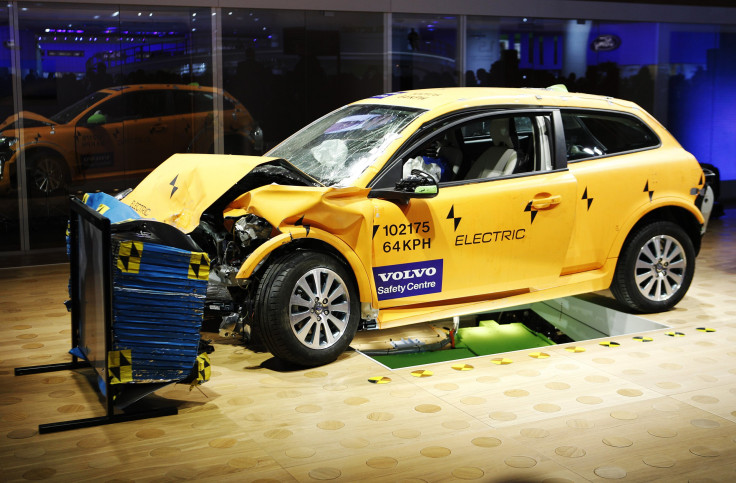Volvo Promises 'Deathproof' Car By 2020, But There's A Catch

In a bold declaration, Volvo has said that by 2020 no one will be killed or seriously injured in a new Volvo car or SUV, according to a CNN Money report Wednesday. Of course, that pledge comes with a significant caveat.
If someone really wants to hurt themselves, or if as CNN Money wrote, someone "is just really, really stupid" then Volvo cannot prevent death or serious injury. But otherwise Volvo, which is owned by China's Zhejiang Geely Holding Group and is based in Sweden, is serious about the deathproof claim.
"If you meet Swedish engineers, they're pretty genuine," said Lex Kerssemakers, CEO of Volvo Cars North America to CNN Money. "They don't say things when they don't believe in it."
Volvo promises deathproof cars by 2020 https://t.co/Fg5RKAWuDv pic.twitter.com/nRIq2xrfk1
— CNN (@CNN) January 20, 2016
There are already a number of very safe cars on the road. There are nine vehicle models, including Volvo's XC90 SUV, that have had zero people during the past four years in the U.S., according to data from the Insurance Institute for Highway Safety. The other eight models were the Audi A4, Honda Odyssey, Kia Sorento, Lexus RX 350, Mercedes-Benz GL-Class, Subaru Legacy, Toyota Highlander hybrid and Toyota Sequoia.
Volvo is reportedly working toward autonomous car technologies that will prevent crashes and help make vehicles deathproof. A number of car companies have suggested they will have fully autonomous cars by 2020. "With the development of full autonomy we are going to push the limits of automotive safety," Volvo safety engineer Erik Coelingh said to CNN Money. "Because if you make a fully autonomous vehicle you have to think through everything that potentially can happen with a car."
The driver of a car might not have to use the autonomous mode, but the systems would be available to take over control of the car if there's danger. Volvo told CNN Money that it's working toward combining features like a responsive cruise control, automatic lane-keeping assistance, sensors and cameras that warn about collisions as well as detection systems for pedestrians and large animals. All told, these features hopefully would make a deathproof car.
Volvo said it sold a record 503,127 cars in 2015, up 8 percent from the year prior, largely boosted by an increased demand for the XC90 SUV and growth in the U.S. and Europe, according to Reuters.
© Copyright IBTimes 2025. All rights reserved.




















